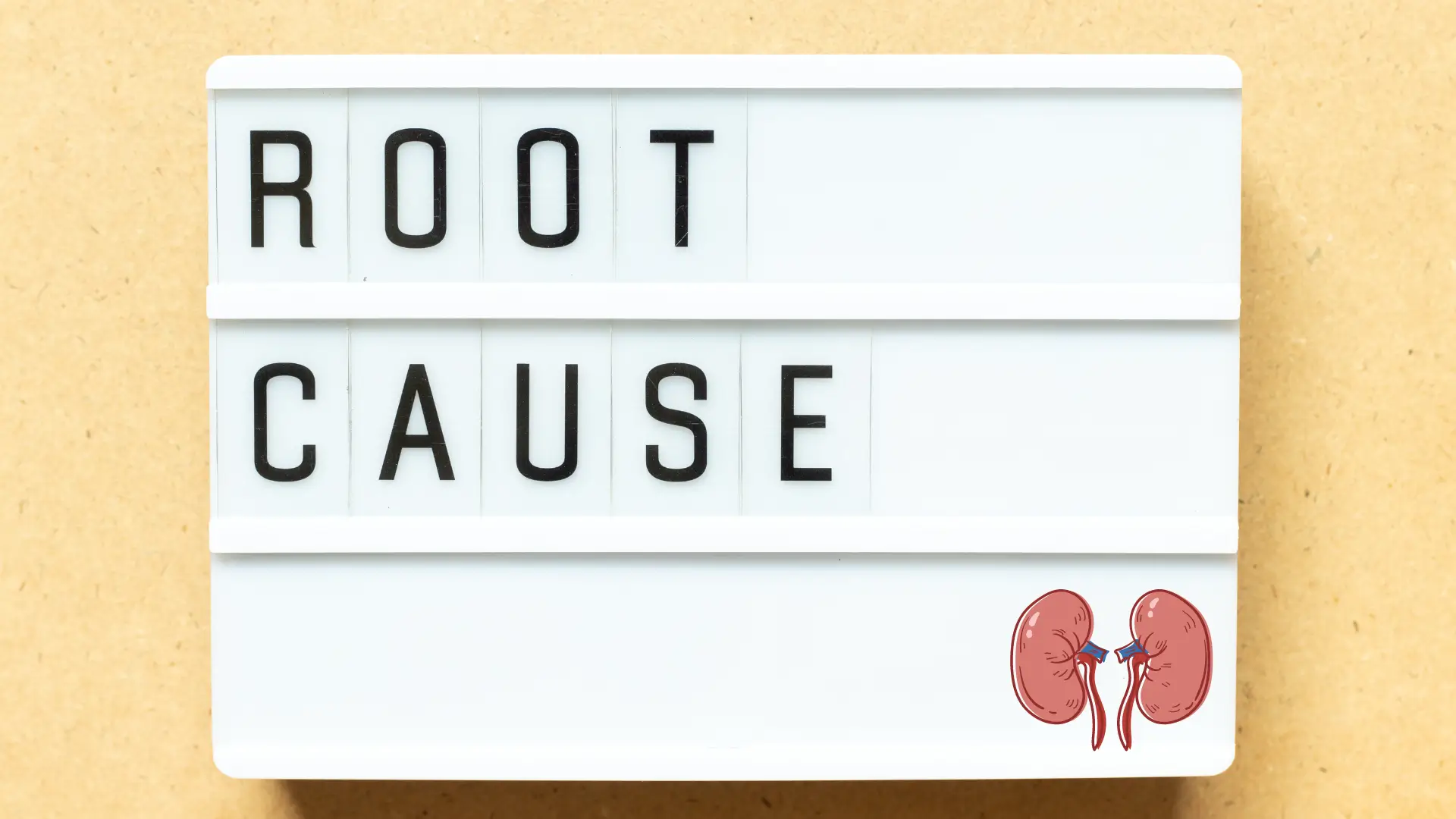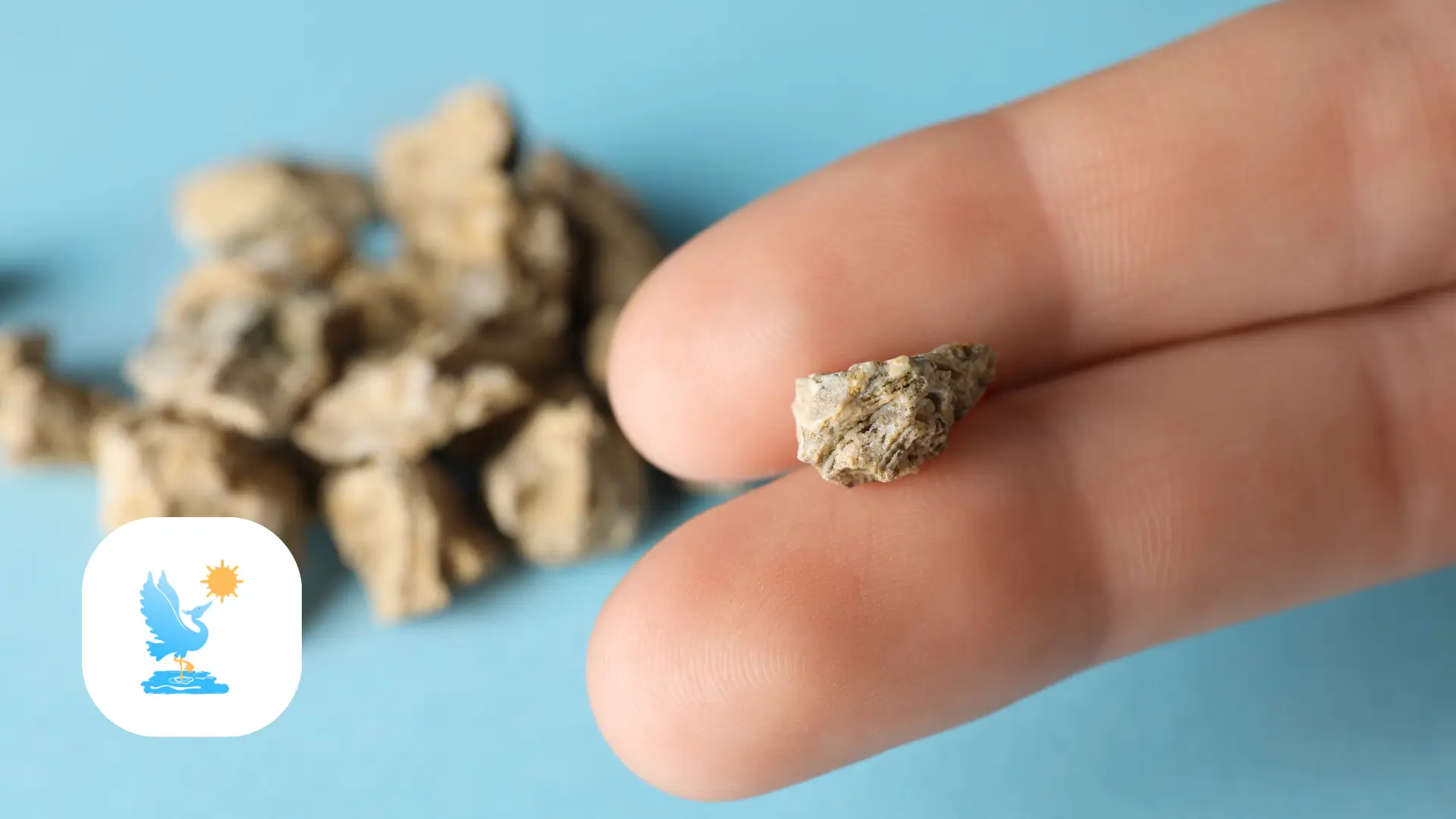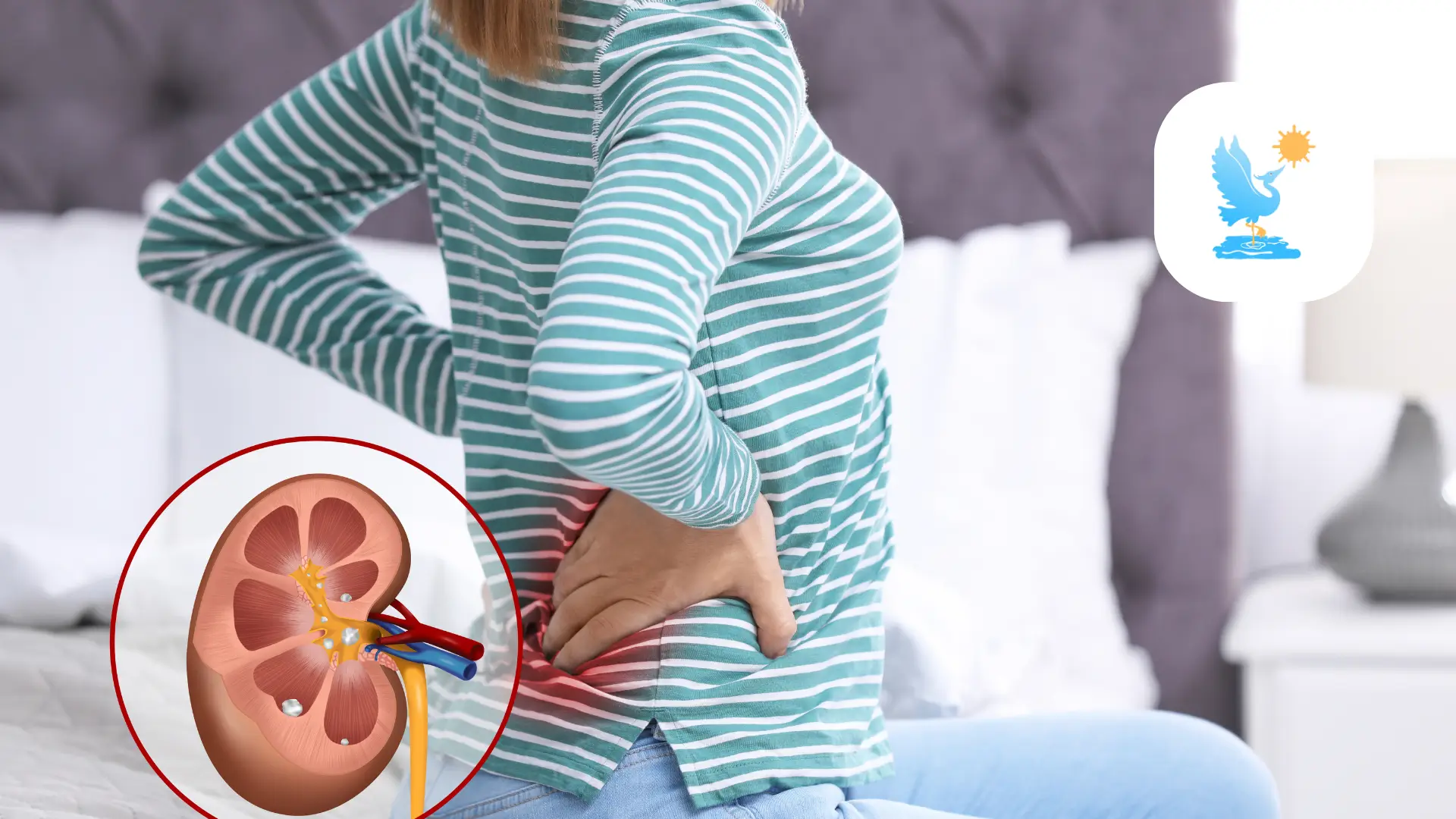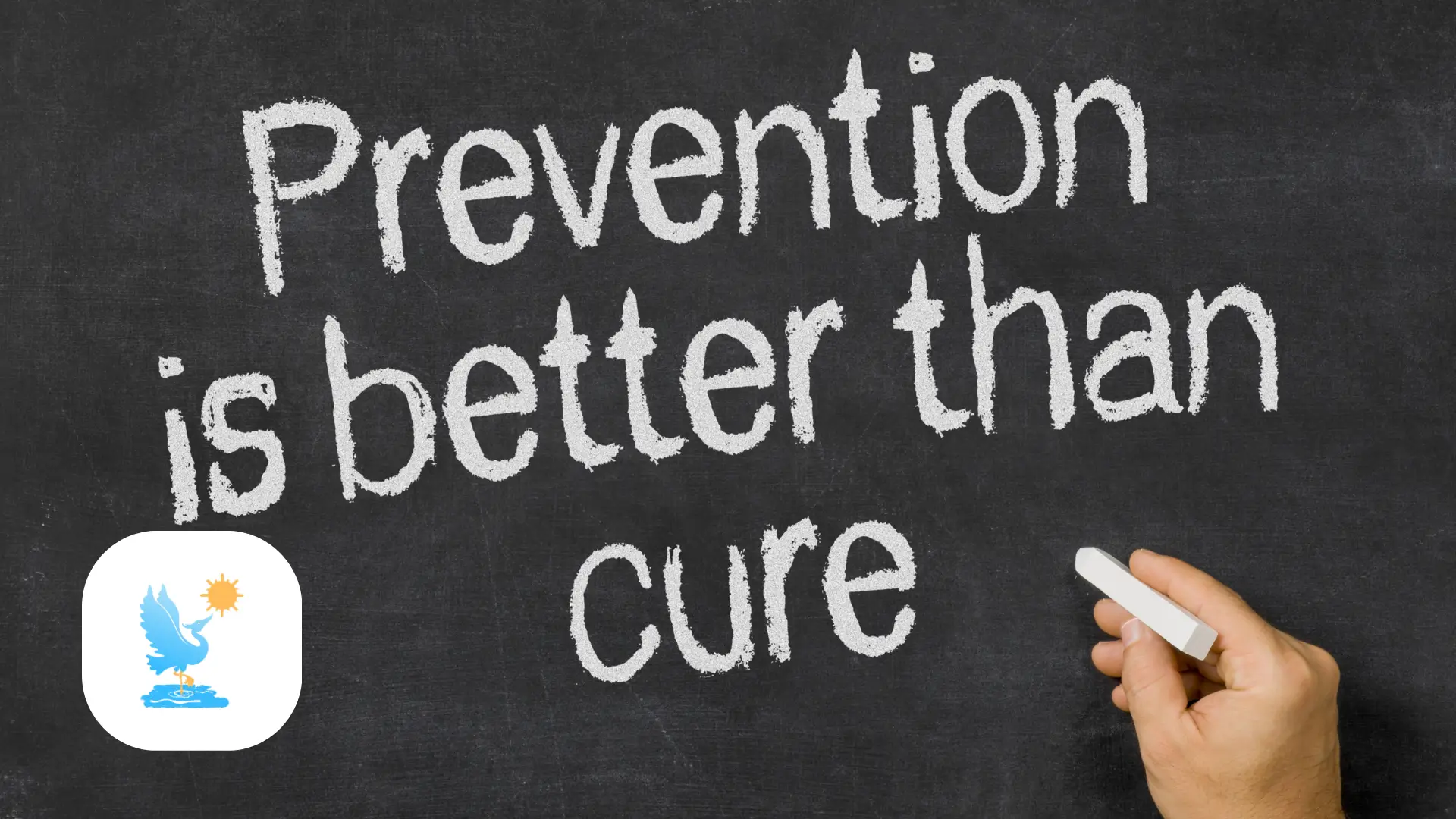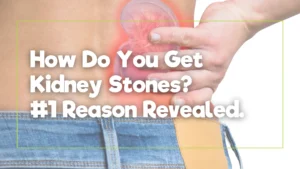How Do You Get Kidney Stones? The #1 Reason Revealed
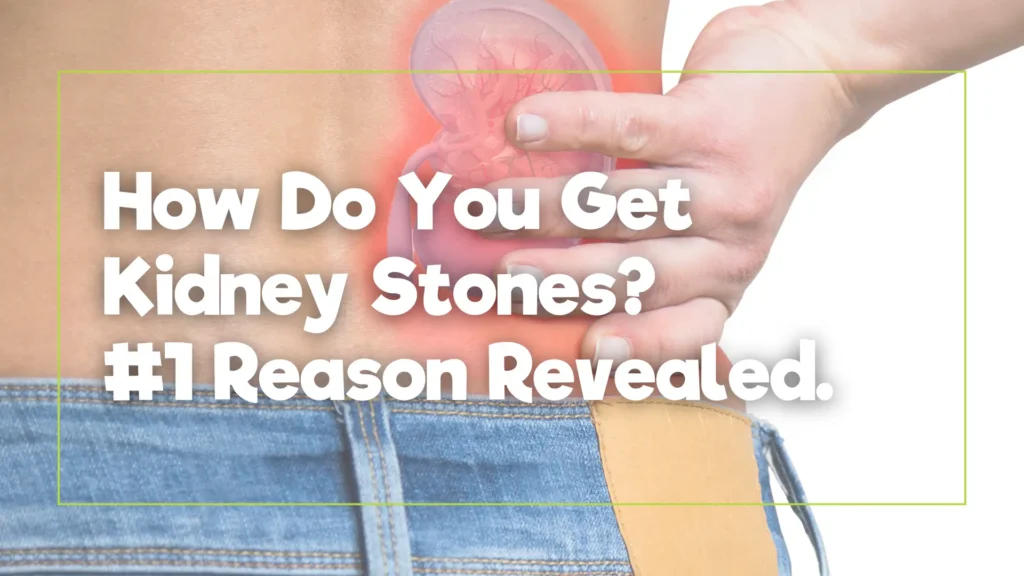
Did you know that 1 in 10 people will develop a kidney stone in their lifetime? What’s more, the incidence of kidney stones is on the rise, even among children.
So, how do you get kidney stones? First, 80% of kidney stones are calcium oxalate stones.
The rest are mainly caused by uric acid buildup and are known as uric acid stones.
If you can keep a stone, you can get it tested to determine what kind of stones you are forming. This will help you take action with diet and lifestyle practices in the future.
What are the Main Causes of Kidney Stones?
So, how do you get kidney stones? I believe the #1 reason is a diet high in oxalates and gut dysbiosis.
Oxalates are found in the plant kingdom.
Plants use oxalates as defense mechanisms.
For example, the higher the heavy metals in the soil, the more oxalates the plant might create to protect itself.
In our contaminated world, this is a huge issue, potentially explaining why more and more people are becoming sensitive to oxalates.
As the metals increase, the oxalates in the plant foods can increase.
These oxalates are very small but also razor-sharp, damaging your body’s tissues if you are unable to process them.
But why would the body create these stones in some and not in others?
Oxalates can contribute to a wide range of issues, such as:
- Mitochondrial dysfunction
- Nutrient deficiency
- Joint pain,
- Bone health issues
- Vulvodynia
- Stones
- and more severe diseases like Fibromyalgia.
However, if your gut lacks certain bacteria, it can be hard for some to process and excrete oxalates.
Oxalobacter formigenes is the main bacteria that helps break down oxalates.
This bacteria that is present in a healthy gut helps break down the oxalates we consume.
I also found some research that shows Lactobacillus spp. and Bifidobacterium spp. can help break down oxalates.
Oxalobacter is hard to find as a supplement.
However, there is a source on eBay that you may be able to purchase.
What’s more, is that even if you supplement it, if the gut is not well, it will be hard for it to survive and proliferate.
The main thing to do is work on overall gut health and adhere to a low-oxalate diet.
How Dietary Factors May Cause Kidney Stones
Below are some of the highest oxalate-containing foods:
- Rhubarb
- Spinach
- Chocolate
- Almonds
- Sweet potatoes
- Peanut butter
You will want to slowly reduce your oxalate intake and work to heal your gut.
If you go from a high-oxalate diet to none, it could cause oxalate dumping, which could make your symptoms worse.
Diets rich in the following items are a recipe for stones:
- Soda
- Processed foods
- Seed Oils
Linoleic acid contributes to overall body inflammation and wreaks havoc on your body’s cells and energy production.
Stop eating a high omega-6 fatty acid diet rich in toxic seed oils.
Omega 6 fats wreak havoc on your body, especially your gut.
And the thing is, if you are doing everything right by shifting your diet and lifestyle, you may have kidney stone pain because the stone is finally dissolving and is making its way out of your precious body.
Things to Do:
- Take care of your gut
- Utilize Peptides like BPC-157 to heal and seal up the gut
- Utilize minerals like fulvic and humic minerals to get energy to the mitochondria.
- Soak in magnesium/baking soda baths
- Take in butyrate to seal up the guts.
- Stay hydrated and take an electrolyte powder in your water
- Enjoy whole, organic, unprocessed foods low in PUFA’s and take a good-quality omega-3 fish oil supplement.
The Role of Genetics in Developing Kidney Stones
If you know others in your family who have kidney stone issues, you may have some genetic disposition to create kidney stones.
However, even if that is the case, you can do much to assist your gut and control your diet to reduce risk factors.
Some inherited conditions could be:
Hypercalciuria: This condition causes an excessive amount of calcium in the urine, often passed down through families. High urinary calcium levels can lead to the formation of calcium oxalate stones.
Cystinuria: An inherited disorder that affects the transport of cystine, an amino acid, leading to the formation of cystine stones.
Primary Hyperoxaluria: A rare genetic disorder resulting in the overproduction of oxalate, which can lead to recurrent kidney stones.
Polycystic Kidney Disease (PKD): This genetic disorder causes numerous cysts to grow in the kidneys, increasing the risk of kidney stones.
RTA (Renal Tubular Acidosis): A hereditary condition that affects the kidneys’ ability to acidify urine, leading to stone formation.
How Dehydration Contributes to the Risk of Kidney Stones
Dehydration can significantly contribute to the formation of kidney stones through several mechanisms.
One of the primary effects of dehydration is reduced urine volume, which produces concentrated urine when you’re dehydrated.
As a result, less urine is produced, which means that the produced urine is more concentrated and increases its minerals and salt concentration, which can lead to stone formation.
Another adverse effect of this condition is an increased saturation rate for stone-forming substances; these include calcium levels (higher in concentrated urine), oxalate, and uric acid, which can quickly crystallize within such an environment and lead to stone development.
The final mechanism of dehydration exacerbating kidney stone formation is urine supersaturation with crystal-forming elements.
Crystallization occurs when minerals and salts are concentrated in the urine and reach a point where they can become supersaturated and develop crystals.
Stones form when crystals come together to form a mass over time. The process is facilitated by the lack of enough urine volume to dissolve these substances.
Not drinking enough water:
Failure to achieve proper dilution: If you do not consume enough fluids, your kidneys cannot dilute urine.
The other thing is getting proper electrolyte balance. Try to add these electrolytes to your morning glass of water.
Electrolytes help to protect the kidneys and prevent further stone formation.
Drinking an adequate amount of water helps dilute the concentration of stone-forming materials. This keeps them from crystallizing quickly, reducing the risk of stone formation.
Removing minerals from the body: Regular and sufficient intake of fluids helps remove minerals and prevent their accumulation, which would lead to stones being formed.
Effect on urine pH levels:
Increased acidity in urine due to dehydration.
Some kidney stones form more easily in an acidic environment. On the other hand, alkaline conditions facilitate the formation of other stones, such as calcium phosphate stones.
Proper hydration can balance urine pH.
For example taking potassium citrate if you do not have kidney disease can help to alkalanize the urine ph.
Amount of Water to Consume:
In terms of daily recommendations, the amount of water you should drink varies depending on your weight, level of physical activity, and climate.
However, a common rule of thumb is consuming 8-10 glasses every day, though this can differ.
One easy way to monitor hydration is to monitor the color of your urine.
A pale yellow shade typically means you’re well-hydrated, but darker shades indicate that it might be wise to drink more fluids.
What are the Different Types of Kidney Stones?
Understanding Calcium Stones: The Most Common Type of Kidney Stone
When oxalate levels are too high, and calcium levels are too low, this can be a recipe for creating calcium stones.
If you are not getting enough calcium, then the oxalates do not bind to the calcium, and this creates an environment for stones to form.
Grass-fed soft goat cheese is A2 cheese, which is easier to digest for most. Consider goat and sheep milk from grass fed animals free of glyphosate.
Uric Acid Stones and Ways to Prevent Them
Uric acid stones are far less common, accounting for about 20% of the stones seen by Doctors and medical professionals.
Recognizing and Treating Struvite Stones
Struvite stones are the result of certain bacteria being present, such as Klebsiella and the species Proteus.
These types of stones can grow rapidly. They can cause a great deal of pain because of how large they can get.
What are the Common Symptoms of Kidney Stones?
Early Warning Signs: Recognizing Small Kidney Stones
Urinary Frequency: If you urinate more often or have trouble urinating, it could be a sign of a kidney stone.
Blood in the Urine: If a sharp stone damages tissue on its pathway out, it could cause a small amount of blood in the urine.
Nausea or vomiting: In some cases, people report feeling nauseous or vomiting from kidney stones.
Cloudy or foul-smelling urine: This may indicate a possible infection.
Pelvic Pain or Back Pain: Depending on where the stone is or at what stage it is on traveling through the urinary tract pain can be felt in different locations.
If it is lodged in the kidney you may experience back pain as it starts to break loose to exit the body.
If it is in the ureter, this can be painful as it exits when you urinate. It can have sharp sides which may cause a small amount of blood from the damaged tissues.
When to See a Doctor for Symptoms of Kidney Stones
Pain can be pretty intense with a kidney stone.
If natural remedies to resolve and dissolve the pain and stone are not helping, you may need to see a doctor.
If you have a fever, chills, nausea, or blood in your urine, you should speak with your general practitioner.
Getting an ultrasound can help to know if it is indeed a stone or something else.
This way, you can take appropriate action steps to remedy the situation.
How are Kidney Stones Treated?
Doctors can use a shock wave device to break up larger stones.
Some people have surgery if the stones when the stones are large.
Home remedies can be used for kidney stones, such as supplementing with citrates.
For example, calcium magnesium citrate can help bind up oxalates and get them out of the body.
Magnesium/Potassium citrate can help prevent stones from forming in the future.
Vitamin B6 helps to dissolve kidney stones.
Apple Cider Vinegar is another way to help dissolve stones if you tolerate vinegar.
You can also try lemon juice if it agrees with you.
The main thing to note is to start watching your oxalate intake and seal up your gut.
Medical and Non-Medical Treatment Options for Kidney Stones
Medical treatments are:
- Shock wave therapy
- Laser therapy to break up stones
- Surgery
Non-medical treatment for kidney stones would be supplementation with:
- Citrates
- Getting enough magnesium
- Electrolyte infused water daily
- Taking a B6 supplement to help dissolve stones.
- A low-oxalate diet is also helpful in combating stones and future stones.
You can also utilize castor oil packs and/or red light therapy over the area where you have pain.
Castor oil helps to break up masses.
What to Expect When You Pass a Kidney Stone
Passing a kidney stone can be pretty painful. I know firsthand.
It is good to have some sort of pain relief remedy, whether natural or pharmaceutical.
Magnesium and baking soda baths can ease the pain. If it is unbearable, one of my favorite ways to quench pain is with DMSO cream.
This cream is incredible at lessening pain.
You can also take freeze-dried aloe, which has all the plant toxins removed and only the healing constituents of the aloe left at Desert Harvest.
This will help soothe the urinary tract.
Sometimes, it can take weeks or months for a kidney stone to pass. It all depends on its size, your diet, and whether you are taking things or applying topical creams or castor packs to help dissolve it.
When Surgery is Needed for a Large Stone
I highly recommend opting for an ultrasound as CT scans put your body through lots of radiation that can be dangerous to your tissues.
They will also take a urine sample and perform a blood test to check for infections.
If they are breaking up the stone, they will use a ureteroscope to enter through the urethra, bladder, and kidney.
They will use an anesthetic and then make an incision in the back and use a nephroscope to get the stone out.
The typical time at the hospital is 1-2 days. Recovery can take a few weeks.
How Can I Prevent Kidney Stones?
As mentioned, it is imperative to start looking at your lifestyle and diet.
But sometimes, people have already made conscious choices, and only after that happens do the stones start to dissolve.
You must implore patience and courage as they leave your body or seek medical attention.
You can prevent kidney stones by:
- Protecting the kidneys with pure water infused with electrolytes
- Reducing oxalates
- Greatly reducing your PUFA and linoleic acid intake
Unfortunately, most restaurants are laden with both, so I highly recommend not eating out or finding restaurants that do not serve toxic seed oils.
There are apps to help you find clean restaurants that do not use these oils, such as True Food Kitchen.
Dietary Changes that Help Prevent Kidney Stones
As mentioned, a diet free of
- Processed foods
- Linoleic acid
- Polyunsaturated fats
- Sodas
- Artificial sweeteners
…will do wonders for kidney health.
Adding in a home-brewed herbal tea with a base of nettle leaf can help strengthen your kidneys and build deep nourishment.
Quality water and staying hydrated with electrolytes are key for optimal kidney health.
Shu Di Huang extract is very low in oxalates when in an extract form and is powerful for nourishing the kidney/adrenal axis.
The other name for Shu Di Huang is Prepared Rhemannia, which means “the kidneys own food.”
A Psychological Perspective
One crucial point is that stones, whether gall or kidney, are related to old hurts or wounds buried in our bodies.
If we are open to releasing grudges, past hurts, and other emotional baggage, we have a much better chance of eliminating kidney stones for good.
When psychological trauma is not addressed, you can never truly heal, and detoxification becomes much harder as we hold onto old thought patterns.
It all starts in the energy field, then the mind, and then the body follows suit.
Natural Remedies that Reduce the Risk of Kidney Stones
Sodium Bicarbonate and Potassium Bicarbonate can significantly assist the body in alkalizing the urine, which will lessen kidney stone formation.
Magnesium supplementation helps prevent the formation of calcium oxalate stones.
Magnesium is a de-stressor and can easily be depleted by our modern world and any stressors we may be under.
Magnesium bath soaks and oral magnesium supplements are essential. Learn which foods are high in magnesium and make a point to eat them daily.
Potassium citrate increases citrate levels in the urine, which helps prevent the formation of calcium stones by binding to calcium and preventing crystal formation.
It also helps to alkalinize the urine, preventing uric acid and cystine stones.
Conclusion How Do You Get Kidney Stones?
This post was all about how One Gets Kidney Stones.
We discussed oxalates, PUFAs, and linoleic acid and how dehydration can cause stones and a damaged gut.
We also touched on how old past hurts must be resolved in the psyche to heal fully.
Have you had a kidney stone, or are you seeking preventative measures?
Let me know in the comments below. If you know others in your family who have kidney stone issues, you may have some genetic disposition to create kidney stones.
However, even if that is the case, you can do much to assist your gut and control your diet to reduce risk factors.


